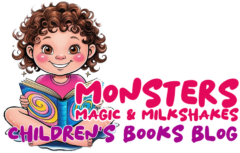Reading books makes young minds feel safe. Studies show stories help kids grow their language skills. They also shape their feelings and growth.
When parents read their favorite stories, it creates a calm place. This is where trust and bonding grow.
Reading lets kids talk about feelings in stories. They learn to feel for others and understand themselves better. Adults guiding them leads to deep conversations.
Why Early Literacy Matters for Emotional Growth
Leading educators say reading early builds strong emotional skills. Reading daily introduces new words and shows different feelings. Kids learn to see things from different views when they meet various characters.
Experts at the American Academy of Pediatrics say to read aloud and talk about it. This helps kids share their feelings about stories and characters. It makes them more aware of their own emotions. Reading early also helps grow language skills and builds empathy and patience.
- Discuss story events and ask open-ended questions
- Encourage children to relate characters’ experiences to their own
- Use simple prompts to guide emotional awareness
“Reading sparks social confidence by teaching children to connect with feelings and ideas beyond their own.” — American Academy of Pediatrics
Understanding Neural Development Through Reading
Reading opens doors to new ways of thinking. It introduces kids to new words and ideas. This helps them understand better and talk more clearly.
Studies from around the world show reading helps the brain grow. It makes connections in the early stages of brain development.
Brain Plasticity and Language Acquisition
Books and stories change the young mind in amazing ways. The brain gets better at handling words and sentences. This helps kids get better at speaking and reading.
Scientists say this process helps kids do well in school. It’s a key part of growing up.
“Reading activates complex networks in a child’s brain that build stronger language pathways,” states the American Academy of Pediatrics.
Shared Reading for Enhanced Verbal Interactions
Reading together with parents or caregivers is special. It’s a time to ask questions and talk about ideas. This makes learning more fun and builds good habits.
Just a little bit of reading time each day can make a big difference. It helps kids love reading and learning more.
Scientific Evidence Supporting Reading’s Impact
Experts say reading time is very important for kids. It helps them learn language and grow emotionally. The American Academy of Pediatrics found that reading makes kids more empathetic and curious.
Groups like the National Literacy Trust say reading helps families. It makes kids better at reading and understanding the world. Reading stories helps kids learn about people and places.
- Expanded vocabulary and creative thinking
- Better focus and cognitive growth
- Healthier emotional connections
Teachers tell parents that reading is special. It’s not just a routine. It helps kids grow smart and emotionally strong. Reading books early helps kids feel confident and ready for school.
Selecting Age-Appropriate Books for Each Stage
Choosing the right books can spark curiosity and build emotional strength. Families who read together often see kids grow to love books. Diverse books celebrate each child’s life, sparking new ideas and understanding.
Infants and Toddlers
Young kids love sturdy board books with big, bright pictures. Simple words let them explore sounds and shapes. Short, easy phrases help them join in.
Interactive parts like flaps or textures keep them interested.
Preschoolers and Early Elementary
Kids this age enjoy stories they can relate to and clear pictures. Books about real-life events spark their curiosity. Parents can find characters that reflect their child’s life or introduce new cultures.
This variety helps grow their vocabulary and sparks their imagination.
Tweens and Beyond
Older kids want chapter books with more depth. Stories with complex plots and relatable heroes make them think. These books help them deal with real-life issues.
Reading books from different genres keeps their interest high and builds confidence.
Creating Engaging Reading Routines
Families do well when reading is a special part of their day. A quiet bedtime story is great, but mornings or afternoons work too. Short reads make kids excited for the next one, making it fun.
Having set times for reading helps kids play with words. Bedtime stories lead to talks about the story and feelings. Weekend story times are for learning together.
Local library events bring new stories and fun together. It’s good to have many books around. This way, kids can read their favorites anytime.
Books like Ms. Rachel children’s book help with language. They make kids want to read more and talk better.
How reading books Boosts Emotional Well-Being
Reading stories can change a child’s feelings in big ways. Books let kids explore different lives, full of fun and deep thoughts. Every page helps them feel new emotions and grow kinder.
Empathy and Emotional Intelligence
Stories show kids their own struggles and wins. They learn to see things from others’ eyes. This helps them care more and understand others better.
BookTrust offers many stories that help kids grow emotionally. These stories show different views of life.
Confidence and Self-Esteem
Finishing a book makes kids feel proud. It helps them speak up more. BookTrust gives kids more books to read, making them feel good about themselves.
Every book they finish makes them stronger. It helps them face challenges with confidence.
Tips for Encouraging a Love of Reading
Reading sparks imagination and grows vocabulary. It also builds strong family bonds. Parents often find that reading books regularly helps create a lifelong love for learning. Making reading a part of daily life makes it special.
Set Consistent Reading Times
Having a set time for reading shows its importance. It makes kids feel safe and eager. Make each reading time special, without phones or TV.
Explore Different Genres
Try out different kinds of books. From Scholastic’s picture tales to Penguin Random House’s fantasy novels. Also, explore cultural anthologies and biographies. This variety keeps reading exciting.
Let kids choose what they like. Maybe they’re into history or adventures. It’s all about finding what they enjoy.
Resources for Supporting Language Development
Families looking to improve speech skills can find great help locally and online. Libraries have storytelling sessions that spark kids’ curiosity. Apps made by teachers offer fun activities to help with pronunciation and phonics.
Community reading programs are open to everyone and help make reading a habit. Podcasts for kids have exciting stories and encourage kids to share their thoughts. These tools help kids grow their reading skills at home.
Parents can find special exercises on speech-assistance websites and workshops. These help kids learn new words and speak clearly. Talking about favorite books with kids helps them connect deeply with language.
- Local library events and story circles
- Kid-friendly apps with phonics exercises
- Reading programs and organized clubs
- Engaging children’s podcasts
Each resource helps a child’s reading journey in its own way. They help kids do well beyond just reading books.
Ms. Rachel’s Children’s Book for Speech Growth
Ms. Rachel’s new book helps kids talk early in a fun way. It uses simple words and bright pictures to grab their attention. Each page invites kids to play with words at their own speed.
Repeating words helps kids get used to sounds. This makes them more confident when they speak. Short phrases help kids focus and start to form words.
Parents say this book makes learning fun. Reading together strengthens the bond between them and their child.
Key Features That Enhance Language Skills
The book has rhythmic phrases and colorful pictures. It chooses words carefully and links sentences to real-life events. This helps toddlers learn useful words for everyday talks.
Reading favorite pages often makes storytime a chance to practice speaking.
Interactive Elements for Engaging Infants and Toddlers
Pointing to pictures and repeating words makes kids active. They learn to express ideas as they follow each scene. Gestures and prompts encourage them to try new words.
This makes them feel proud of their progress. It also encourages them to keep exploring while reading.
Leveraging BookTrust for Wider Access
BookTrust helps families all over the country. It gives out books and advice. It helps kids learn to read early, so they can explore new things.
You can find these books at your local library or online. BookTrust has great stories and tips to help kids love reading.
This makes kids curious and keeps their minds sharp. It helps them understand different cultures and ideas. This way, every child finds books that spark their creativity and empathy.
BookTrust is a great resource for parents. It helps make home libraries better and more fun. It offers many kinds of books, so kids can explore safely and enjoyably.
This helps kids learn more and understand different cultures. It makes sure every child can find great books to read, no matter their age.
Planning a Curated Reading List for Emotional and Cognitive Development
Children do well with a mix of reading books. These books help them feel strong and think clearly. Stories and facts together grow empathy, curiosity, and bravery.
Thoughtful organization makes reading exciting. It lets kids enjoy different stories and learn new words.
Fiction Selections
Good stories have characters facing tough choices and feelings. Books from Scholastic or Penguin Random House are great. They teach kids about empathy by showing how others deal with problems.
Nonfiction and Educational Picks
Books from National Geographic Kids or DK are full of wonder. They teach about nature, science, and history. Kids learn to ask questions and find answers, connecting what they learn to their lives.
Multicultural and Inclusive Titles
Stories about different cultures help kids understand the world. Books by authors from all walks of life teach acceptance. They help kids grow up open-minded and accepting.
Conclusion
Reading books makes kids curious. It helps them feel more confident and understand language better. Parents can make stories a part of everyday life.
Ms. Rachel and BookTrust show us how to make reading fun. They offer many books that kids love. This helps kids grow emotionally and learn more about the world.
Choose books that fit your child’s age and likes. You can pick from board books, colorful pictures, or stories about different cultures. A growing library at home can spark a love for learning. It helps kids become creative, caring, and well-read.




